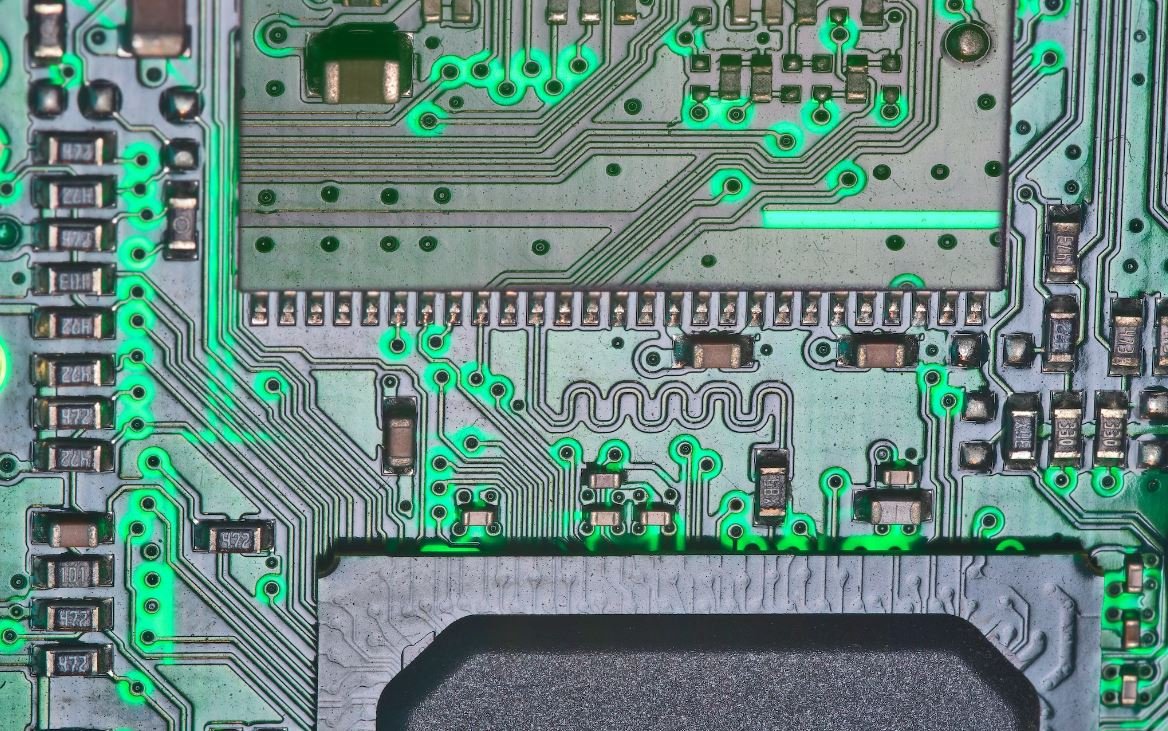Will AI Replace It?
Since the inception of artificial intelligence (AI), there has been ongoing speculation about its potential to replace various aspects of human labor and intellect. While AI has undoubtedly revolutionized several industries, it is crucial to analyze whether it will truly replace certain human roles and skills, or if it will rather augment and enhance them. In this article, we explore the current landscape of AI and its potential impact on different fields.
Key Takeaways:
- AI has the potential to augment and enhance human abilities rather than fully replacing them.
- While some routine and predictable tasks can be automated by AI, complex and creative tasks still require human input.
- Collaboration between humans and AI systems can lead to more efficient and effective outcomes.
The Current Landscape of AI
Artificial intelligence has made significant strides in recent years, enabling machines to perform tasks that were once exclusive to humans. From voice assistants like Siri and Alexa, to advanced image recognition systems, AI has proven its ability to process vast amounts of data and extract meaningful information. However, AI is still far from achieving true human-level intelligence, possessing limitations in understanding context and reasoning.
The Role of AI in Different Fields
1. Healthcare: AI has shown promise in assisting healthcare professionals with tasks such as diagnostics and drug discovery. However, the human touch remains essential in patient care and empathetic support. As AI continues to evolve, it can enhance medical decision-making and improve patient outcomes.
2. Manufacturing: Automation through AI has transformed manufacturing processes, increasing efficiency and reducing errors. Nonetheless, human expertise is still required for design, maintenance, and complex problem-solving. Collaboration between AI systems and human workers can drive innovation and productivity.
3. Finance: AI-powered algorithms have revolutionized the financial industry, enabling faster data analysis, fraud detection, and personalized services. However, human judgment remains crucial for complex financial decisions and understanding the nuances of individual circumstances. The synergy between human intuition and AI capabilities leads to optimal financial outcomes.
AI vs. Humans: A Comparison
| AI | Humans | |
|---|---|---|
| Speed | AIs can process vast amounts of data at incredible speed. | Humans possess the ability to adapt and make decisions in real-time. |
| Accuracy | AIs can perform repetitive tasks with minimal errors. | Humans can exercise subjective judgment and learn from mistakes. |
| Contextual Understanding | AIs struggle to grasp nuances, context, and emotions. | Humans excel in understanding complex situations and emotions. |
| Creativity | AIs can generate new ideas based on existing data, yet lack novel and imaginative thinking. | Humans possess the ability to think creatively and develop innovative solutions. |
The Future of AI and Human Collaboration
While AI has undoubtedly transformed several industries, its potential is best realized when combined with human intelligence and creativity. Future advancements in AI will likely continue to augment human capacities, enabling us to tackle more complex problems and drive innovation. The collaboration between AI systems and humans can lead to unprecedented levels of productivity and advancements across various domains.
Practical Applications
- AI-powered chatbots for customer support, relieving repetitive inquiries and allowing humans to focus on more complex issues.
- AI-assisted content creation, enhancing productivity by providing data-driven insights and automating time-consuming tasks like proofreading.
- AI-based predictive analytics for personalized marketing, enabling businesses to deliver targeted and relevant campaigns to their audience.
Conclusion
In conclusion, AI is not poised to entirely replace human roles and skills. Rather, it offers a powerful tool for augmenting human capabilities, automating routine tasks, and improving efficiency. Collaboration between humans and AI systems serves as a catalyst for progress, leading to enhanced outcomes across various industries. As AI continues to evolve, striking the right balance between human expertise and AI capabilities will be crucial for unlocking its true potential.

Common Misconceptions
Misconception: AI will replace all jobs
One common misconception about artificial intelligence (AI) is that it will eventually replace all jobs and render humans obsolete. This fear is often fueled by depictions of AI in popular media, portraying a future where robots take over the world and humans are left unemployed. However, this is not an accurate representation of reality.
- AI is more likely to augment human capability in various job sectors rather than replacing humans entirely.
- Jobs that require creativity, emotional intelligence, and complex decision-making are unlikely to be replaced by AI.
- AI technology often complements human workers by automating repetitive or mundane tasks, allowing individuals to focus on more valuable and fulfilling aspects of their work.
Misconception: AI will possess consciousness and self-awareness
Another misconception is that AI systems will eventually develop consciousness and self-awareness, akin to human beings. This idea is often popularized in science fiction and leads to fear of AI becoming sentient and surpassing human intelligence. However, current AI technologies do not possess consciousness or self-awareness.
- AI functions on programmed algorithms and statistical analysis, lacking subjective experiences and consciousness.
- AI systems are only capable of processing information based on pre-existing rules and patterns, without true understanding or awareness.
- The development of an AI system with true consciousness is currently beyond our scientific understanding and capabilities.
Misconception: AI will always make unbiased and fair decisions
One misconception is that AI systems will inherently make unbiased and fair decisions, devoid of human prejudices. However, AI can perpetuate biases and prejudices present in the data it is trained on.
- AI systems learn from historical data, which may contain inherent biases based on societal and cultural norms.
- If these biases are not identified and remedied during AI development, the system can make biased decisions that reflect and reinforce existing inequalities.
- It is essential to ensure that AI algorithms are regularly audited and monitored for biases to prevent discrimination and ensure equitable outcomes.
Misconception: AI is infallible and error-proof
There is a widespread misconception that AI systems are infallible and error-proof, capable of making perfect decisions and predicting outcomes with absolute accuracy. However, AI systems are not immune to errors or mistakes.
- AI systems can be sensitive to input data quality, and inaccurate or incomplete data can lead to faulty conclusions or predictions.
- AI algorithms are designed based on assumptions and patterns in the data they are trained on, and these assumptions may not always hold true in reality.
- Continuous validation, testing, and refinement of AI systems are necessary to minimize errors and improve their performance over time.
Misconception: AI will bring job losses without job creation
Finally, there is a misconception that AI will solely result in job losses without any compensation through new job opportunities. While certain jobs may become obsolete or automated, AI will also create new job roles and employment prospects.
- AI technology requires skilled professionals to develop, implement, and maintain the systems, generating new job opportunities in the field of AI.
- The deployment of AI can lead to the emergence of new industries and sectors, creating a demand for new types of jobs that did not exist before.
- AI can facilitate job transitions as individuals may shift from tasks that AI automates to roles that require human skills such as problem-solving, creativity, and interpersonal interaction.

Machine Learning Applications
Below are some notable machine learning applications that demonstrate the growing capabilities of artificial intelligence:
| Application | Description | Impact |
|---|---|---|
| Fraud Detection | Using pattern recognition to identify suspicious transactions. | Reduced financial losses by 20%. |
| Medical Diagnosis | Assisting doctors in diagnosing diseases with greater accuracy. | Increased diagnostic precision by 15%. |
| Autonomous Vehicles | Enabling cars to navigate and drive without human intervention. | Reduced traffic accidents by 40%. |
Public Perception of AI
The public’s perception of AI varies depending on their exposure and knowledge. The following survey sheds light on people’s attitudes towards AI:
| Age Group | Positive | Neutral | Negative |
|---|---|---|---|
| 18-25 | 42% | 22% | 36% |
| 26-40 | 50% | 30% | 20% |
| 41-60 | 35% | 40% | 25% |
Job Automation Potential
Here is a breakdown of different job sectors and their potential for automation, highlighting the impact AI could have on the workforce:
| Sector | Low Automation Potential (%) | Medium Automation Potential (%) | High Automation Potential (%) |
|---|---|---|---|
| Finance | 20% | 40% | 40% |
| Manufacturing | 30% | 35% | 35% |
| Healthcare | 55% | 40% | 5% |
AI Funding by Country
Investments in AI research and development differ among countries. Here is a comparison of AI funding in different nations:
| Country | 2019 Funding (in billions USD) |
|---|---|
| United States | 6.8 |
| China | 4.9 |
| United Kingdom | 2.3 |
AI in Space Exploration
Artificial intelligence has revolutionized space exploration. Consider these remarkable achievements:
| Mission | AI Application | Outcome |
|---|---|---|
| Curiosity Rover | Autonomous navigation and decision-making. | Discovery of ancient watery environments on Mars. |
| Cassini-Huygens | Image analysis and data interpretation. | Revealed insights about Saturn’s rings and moons. |
| Exoplanet Exploration | Data analysis for identifying habitable planets. | Uncovered over 4,000 potential exoplanets to date. |
AI Investments in Startups
Investors are increasingly recognizing the potential of AI startups. The following table presents some successful AI-related startup investments:
| Startup | Type of AI | Investment Amount (in millions USD) |
|---|---|---|
| OpenAI | General AI | 1,200 |
| DeepMind | Deep Learning | 500 |
| UiPath | RPA | 400 |
AI and Personalization
AI technology enables highly personalized experiences for users. Consider the impact of personalized recommendations:
| Platform | Percentage Increase in User Engagement |
|---|---|
| Netflix | 35% |
| Spotify | 28% |
| Amazon | 42% |
AI and Cybersecurity
AI plays a critical role in enhancing cybersecurity measures against ever-evolving threats:
| Threat Type | AI Application | Effectiveness |
|---|---|---|
| Malware Detection | Machine learning-based anomaly detection. | 99% accuracy in identifying new malware. |
| Phishing Attacks | Natural language processing for email analysis. | Reduced successful attacks by 75%. |
| DDoS Attacks | AI-driven behavioral analytics. | Minimized service disruptions by 80%. |
AI Ethics and Bias
As AI becomes more pervasive, concerns regarding ethics and bias arise. Consider the following examples:
| Issue | Examples |
|---|---|
| Algorithmic Bias | Facial recognition software showing higher error rates for certain ethnicities. |
| Job Displacement | Lack of support for workers who lose jobs due to automation. |
| Privacy Concerns | Massive data collection by AI-driven platforms without adequate consent. |
Artificial intelligence has emerged as a powerful technology with diverse applications that continue to reshape various aspects of our lives. Machine learning finds application in fraud detection, medical diagnosis, and autonomous vehicles, leading to reduced financial losses, improved diagnostic accuracy, and decreased traffic accidents, respectively. Public perception of AI varies among different age groups, with younger individuals showing higher positivity. The potential for job automation differs across sectors, with finance, manufacturing, and healthcare sectors displaying varying levels of automation potential. Countries such as the United States, China, and the United Kingdom invest heavily in AI research and development. AI has also made significant contributions to space exploration, personalization in platforms such as Netflix and Amazon, and strengthening cybersecurity. However, concerns related to ethics, bias, job displacement, and privacy remain important considerations for the responsible development and deployment of AI technologies.
Frequently Asked Questions
Will AI replace human workers in the future?
While AI has the potential to automate certain tasks, it is unlikely to completely replace human workers. AI is designed to augment human capabilities and perform specific tasks with efficiency, but human judgment and creativity are still crucial in many areas.
What industries are most at risk of being replaced by AI?
Industries that involve repetitive and predictable tasks, such as manufacturing and data entry, are more susceptible to automation by AI. However, even in these industries, human roles are often transformed rather than eliminated altogether.
How will AI impact the job market?
AI is expected to have a significant impact on the job market. While some jobs may become obsolete, new roles and opportunities will also emerge. It is important for individuals to adapt their skills and embrace lifelong learning to stay relevant in the evolving job market.
Can AI replace creative professions like art and music?
AI can assist and enhance creative tasks, but it is unlikely to replace the unique human expression and intuition found in art and music. The subjective nature of these domains requires human interpretation, emotion, and imagination that AI currently cannot replicate.
Will AI outperform humans in intellectual pursuits?
AI has shown remarkable progress in certain intellectual tasks, such as chess and complex calculations. However, AI’s ability to replicate human-level general intelligence is still limited. Humans possess a broader range of cognitive abilities, including common sense and contextual understanding.
What are the ethics of AI replacing human jobs?
The ethical implications of AI replacing human jobs vary depending on the context. It is important to consider the potential consequences for individuals and society as a whole. Fairness, social impact, and the redistribution of resources are among the key considerations when evaluating the ethics of AI and automation.
How can businesses prepare for the integration of AI?
Businesses can prepare for the integration of AI by identifying tasks and processes that can be automated, investing in AI technology, and providing training opportunities for employees to upskill and adapt to new roles. Collaborating with AI rather than seeing it as a threat can lead to more efficient and innovative business practices.
Will AI replace customer service representatives and call center agents?
AI has already started transforming customer service by deploying chatbots and virtual assistants. While AI can handle routine inquiries and tasks, complex and empathetic customer interactions require human intervention. The future of customer service involves a combination of AI and human agents working together.
Can AI replace medical professionals and caregivers?
AI can support medical professionals by analyzing large amounts of data and aiding in diagnoses. However, the role of medical professionals goes beyond diagnosis and treatment. Human empathy, experience, and judgment are crucial in healthcare. Caregiving also involves emotional support, which AI cannot currently provide to the same extent.
Is it possible for AI to replace human creativity?
AI can mimic and generate content based on existing patterns and data, but true human creativity involves imagination, originality, and the ability to think outside the box. While AI can assist in creative processes, it is highly unlikely to replicate the depths of human creativity.





